My uncle – Geoffrey Nicolls – served with the 16th West Yorkshire Regiment in WW1 and in the same week that he was attached to his battalion this line appears in the official War Diary:

July the 14th 1916 – less that a fortnight after the first day of the Somme offensive that had devastated the battalion and put the army and the nation into shock. Clearly something serious had happened to occasion such a harsh sentence. And removing a man from the front line in a time of shortage and need. What happened?
But first – a little background on the battalion and how their journey to the Western Front.
The 16th battalion of the West Yorks was a “Pals” battalion – so called because soldiers were recruited with the promise of: Join together and serve together. And in this case – all too often die together.
The 16th was the first of the Bradford “Pals” battalions raised in the city in the enthusiasm and war fever of the first weeks of the war in 1914. The majority of men and officers were from the Bradford area and the list of their occupations makes for an interesting glimpse into social history of pre-war Bradford.
After training the battalion was posted to Egypt sailing on the Canadian ship the Empress of Britain.
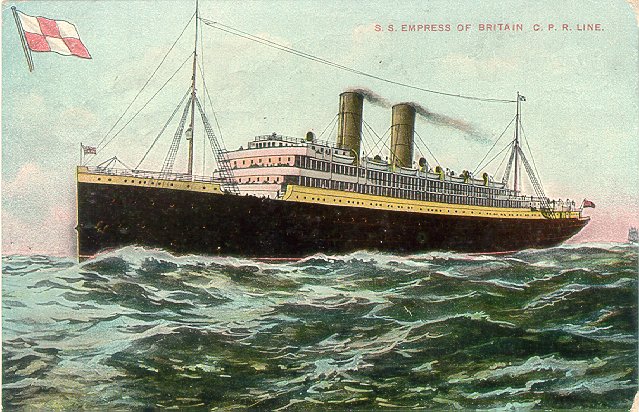
They encamped in a desert location known as ‘Point 70’ and were employed on outpost duties and the construction of defences to protect the northern caravan routes from the Turks. The work was tedious, the desert rations monotonous. They suffered the discomforts of heat and dirt and the torment of flies, scorpions and camel spiders. Water was brought to the camp by camels and strictly rationed to one gallon per man per day and that had to be for washing and cooking as well as drinking.
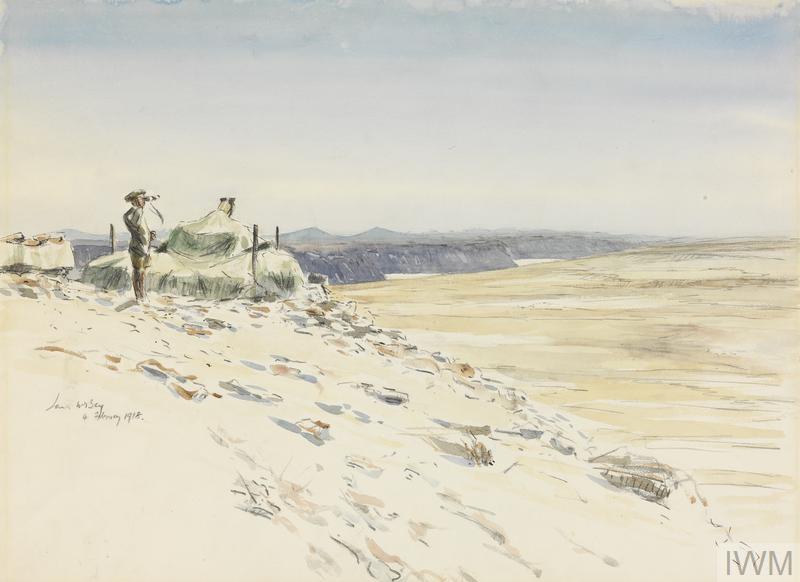
On February 9th 1916 they left Port Said and embarked for France to take their part in the build-up before the big push on the Somme. They landed in Marseilles and moved by train to Pont Remy, a railhead near Abbeville on March 9th.
The next day they marched 8 or so miles to billets in Merelessart. Later in the month they moved in stages to the Beaumont-Hamel area and billets at Bus-les-Artois. On April 20th they relived the 10th Battalion, the East Yorkshire Regiment in the front line at Colincamps for their first taste of the front line.
The trenches in this sector were deep and well constructed, divided into short bays and with fire steps for access to the parapet. No Man’s Land was about 200 yards across, pitted with shell holes and with coils of barbed wire defenses protecting the fronts on both sides. The trenches, however, were wet, prone to flooding, and noisome with the stench of rotting bodies between the lines, latrines and lingering poison gas.
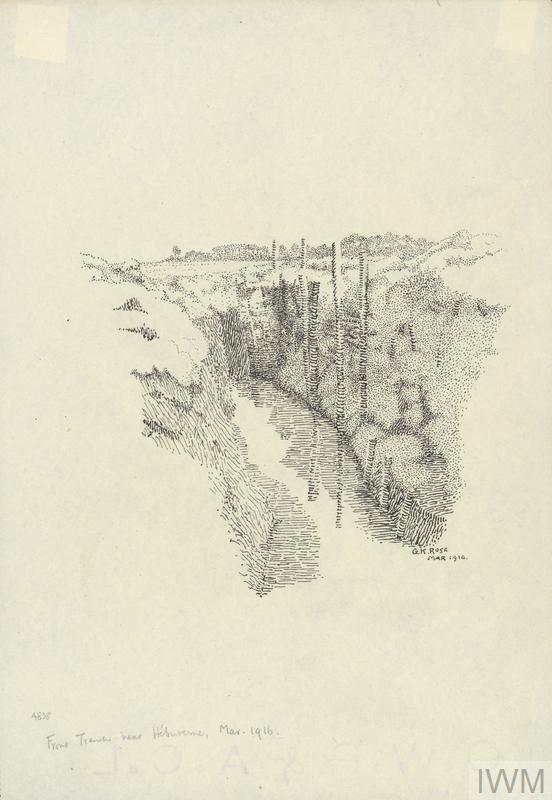
The battalion learned the trench routines of stand-to and stand-down, wiring parties at night, watching the enemy via periscope and the endless trench repair. Four days in the front line and four days in support trenches and then back to billets for cleaning up, rest and continued training, drills and parades. And there were casualties – from shell fire, shrapnel, sniping – in the front line, on working parties, during reliefs and while in billets.
‘Going over the top’ on 1 July 1916 was the first taste of front line battle for these Pals’ Battalions.
After a hot meal on June 30th the Battalion companies moved up through congested trenches into positions under heavy shelling between 2,30 and 3.00am.
Troops were given a tot of rum. At 7.20 a.m. on the morning of Saturday, 1st July, 1916 and in accordance with the detailed planning, the leading platoons of the 15th West Yorkshire’s (the Leeds Pals) crawled out into No Man’s Land and onto white tapes laid in preparation for the advance.
The British artillery barrage that had pounded the enemy lines for days now reached a frenzy as “Zero” hour approached. There was a final ‘Hurricane Bombardment’ by 2 inch Stokes Mortars in the forward saps. The 252nd Tunneling Company now detonated the mine at Hawthorne Ridge to the south. All was going as planned.
At Zero hour 7.30am the whistles blew to signal the beginning of the attack.
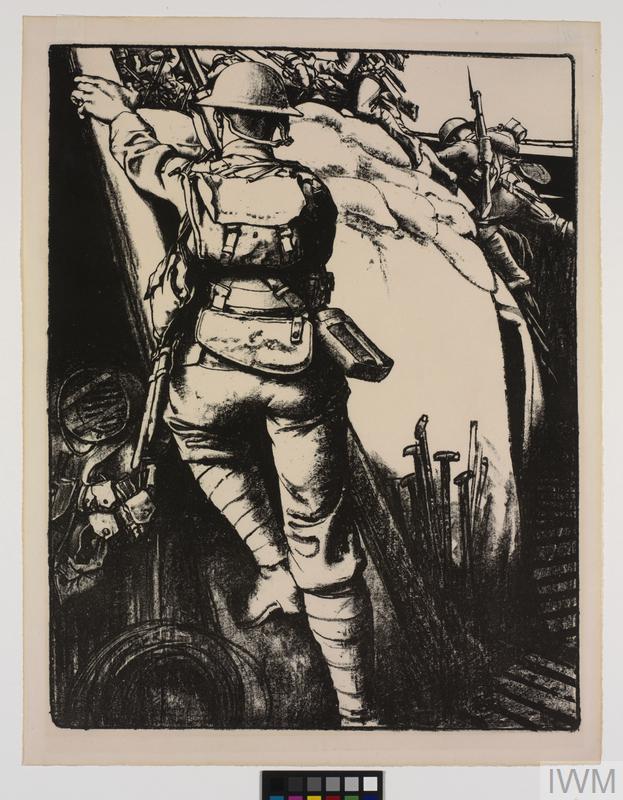
The War Diary account of that day is made all the more vivid by the diarist’s inclusion of first hand reports from officers, NCO’s and men. This report by from Sergeant-Major Cussins is just one small extract from the first hand accounts in the War Diary:
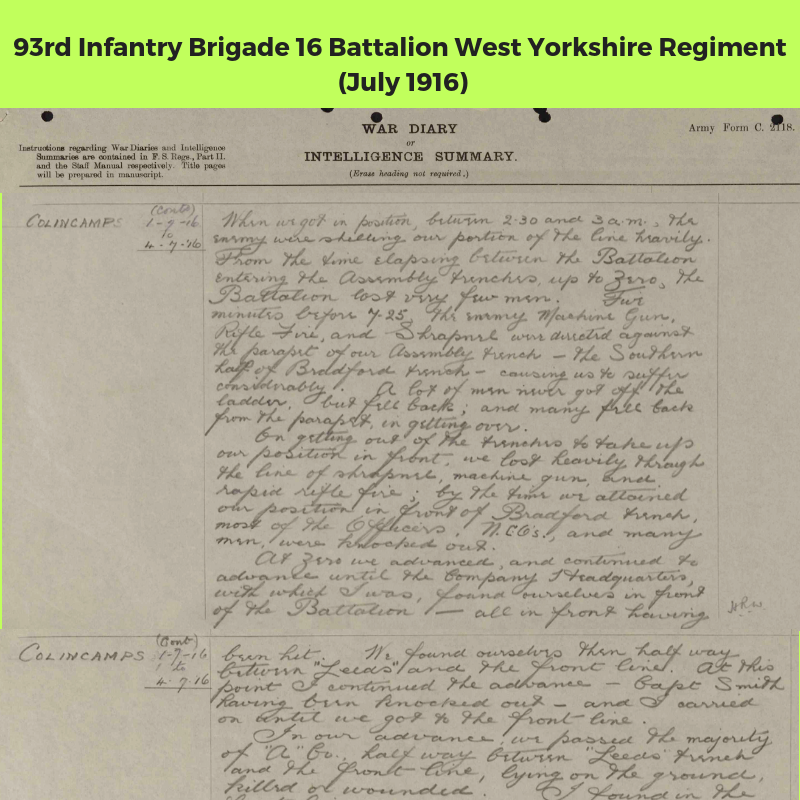
In our advance we passed the majority of “A” company … lying on the ground killed or wounded.. – Sergeant Major Cussins.
The leading platoons rose to advance. They were at once met with a storm of heavy rifle and machine-gun fire. The Germans knew the attack was imminent and they were ready.
One unknown Leeds ‘Pal’ in a letter quoted in a Yorkshire paper described the advance of the first wave:
“It was just slaughter….we never had a chance of getting across. The artillery and machine-guns combined made it an impossibility. However we were told to go over and we tried our best.It was wonderful to see the lads walking into that hail of metal, even though they could see the “waves” in front of them being wiped out.”
The forward companies of the 16th West Yorkshire’s now commenced their advance. “A” and “C” together with the attached company of the Durham Light Infantry were mown down by artillery, machine-gun and rifle fire as they left their assembly trenches
The Battalion War Diary records the losses on the 4th July 1916: Officers: 10 Killed, 1 Died Of Wounds, 1 Not Accounted For, 10 Wounded. In Other Ranks: 58 Killed, 11 Died Of Wounds, 111 Not Accounted For, 323 Wounded. An horrendous total of 515 casualties. Only two officers out of the 24 remained unwounded. the majority of other ranks were killed, missing or wounded. Other battalions were to suffer losses even more extreme.
| Private Arthur Pearson was among the survivors He later spoke of his grief at losing so many of his comrades: ‘The name of Serre and the date of 1st July is engraved deep in our hearts, along with the faces of our ‘Pals’, a grand crowd of chaps. We were two years in the making and ten minutes in the destroying.’ |
So what of Private Patchett – the man from “A” Company who was sentenced to two years of hard labor just days later?
What on earth had he done wrong in that storm of death?
Two books on the Bradford Pals both tell the story of Pte. Pachett.

Private J. Patchet of ‘A’ Company was caught after lights out in his tent writing a letter by candlelight. He was ordered to extinguish the light and turn in. Feeling this to be unreasonable, he continued to write. Private Patchet therefore found himself on a charge and up before the Colonel.
Now Private Patchet was, in civilian life, a solicitor and, in this instance, considered the charge to be unreasonable and himself innocent. Therefore when asked if he would accept the Colonel’s punishment he demanded a court martial. The Army granted his request. Later a field-court martial awarded him two years hard labour.
– The Bradford Pals, Ralph N. Hudson page 11.

Really? Two years hard for the crime of “writing by candlelight” not in a war zone makes for a good story. But it doesn’t ring true.
Seems harsh for a man who had just survived a storm of steel and in a time of losses and military emergency. And a solicitor? And while the Army was certainly busy at that time – that’s an unusually long time between the crime and the sentence.
How to find out? Patchett is not mentioned again in the War Diary so no help there.
Hudson’s book has a wonderful list of the names and occupations of those who first enlisted with the 16th battalion. Bradford was the worsted capital of the world. So many of those occupations no longer exist. There is one solicitor listed there but his name is George Holden. There is no Patchett.
So off to the records to get the story
The civil and military records for 16/1501 Private J. Patchett tell a very different tale.
Joshua Pachett was born in 1886 in Shipley the son of a boatman. In 1907 he married Emily Crummock and by the time of the 1911 census they have three children – Susannah, Albert and Florence. His occupation is listed living in Wood Street, Shipley and working as a boatman on a coal barge.
His first brush with the law that made the local newspapers seems to have been when he was 15.
WEST RIDING COURT, BRADFORD, THURSDAY
OBSTRUCTION AT SHIPLEYJoseph Miller, bottle washer, and Joshua Patchett, boatman, both
of Shipley, were summoned for obstructing the footpath in Otley Road, Shipley, on the night of the 3rd instant. Constable Bacon, in proving the case, said persons passing had to turn off the footpath in consequence of the obstruction caused by the defendants, who had been previously warned the same evening. Defendants were ordered to pay the costs, 7s 6d each. – Shipley Times and Express 18 October 1901
There was another offense reported on 6 November 1908
DISORDERLY CONDUCT Joshua Padgett, boatman of Wood Street, Shipley, was summoned at the West Riding Police Court, Bradford, yesterday (Thursday) for using bad language. Defendant’s wife appeared. Police-constable Endersby said that on the 17th of last month at 11.10 pm, he was in Otley Road in company with Police-constable Potter, when he heard a disturbance going on in Wood Street. On proceeding there, he saw the defendant, who was stood in the doorway of his house. Defendant went into the house and locked the door, and afterwards broke the window, put his head out and made use of bad language. A fine of 2s 6d and the costs was imposed.
Shipley Times and Express
And a more serious offense reported a year later:
WIFE ASSAULT Joshua Patchett, boatman of Lupton Street, Shipley, was charged at the West Riding Police Court, Bradford, yesterday (Thursday) morning, before Dr W H Ellis (in the chair), Councillor James Roberts, Councillor J Pitts and other magistrates, with assaulting his wife on the 6th inst. Mrs Patchett stated that on that day her husband came home late at night in a drunken condition. She was ill and was in bed. He at once commenced to use foul language, and getting hold of her by the hair pulled her violently out of bed and kicked her about the body. She broke away from him and ran into the house of one of the neighbours. He followed her, and said that if she did not come back he would break all the windows. All the while he used foul language. She was afraid to go back, however, and stayed with the neighbour all the night. They had been married two years and had two children. Her husband had never given her much money, and had spent his wages in drink and in backing horses. Mrs Cryer of Lupton Street said she offered Mrs Patchett protection from her husband on the night in question. PC Quinn stated that he was called to the house shortly before twelve on the 6th inst, and saw the complainant, who was in a very distressed condition. She complained to him that the defendant had kicked her, and the latter did not deny the offence. Mrs Patchett’s hair was very untidy, as if she had been pulled about. Superintendent Morley said there were four previous convictions against the defendant. The Chairman remarked that the defendant ought to be ashamed of himself. It was not a question of that particular offence, but it was his general behaviour towards his wife and his continuous ill treatment of her. He must go to prison for one calendar month.
Shipley Times and Expresss 16 April 1909
In 1914 he was sentenced to six months and one month concurrently for child neglect and served time in HM Prison Wakefield.
This is the account from the Shipley Times and Advertiser
December 1913
A FATHER’S HEARTLESS CONDUCT A Shipley boatman’s heartless conduct to his wife and five young children had its sequel at the Bradford West Riding Police Court on Monday last. Joshua Patchett was charged at the instance of the National Society for the Prevention of Cruelty
to Children with neglecting his family. A further charge of neglect was preferred by the North Bierley Board of Guardians. Mr Alex Neill, who appeared on behalf of the NSPCC, said the prisoner lived at 3 Wood Street,
Shipley, and he had a wife and five young children. He was a boatman, and was able to earn 25s to 35s a week. He had given his wife 2s 6d, 5s and 10s a week, and had spent the rest of his wages on drink. His wife was a decent and respectable woman, and had been helped by neighbours. The family had suffered in health in consequence of the neglect. When an inspector of the society called, the prisoner promised to do better and leave drink alone. His wife later said that he was doing better, but it was afterwards ascertained that she was screening him because she was in terror of him. On October 4th he left his family, and had not contributed anything, so that they were in a state of starvation. He was arrested on Saturday. The family had received outdoor relief from the Poor Law authorities. Inspector Walker said he had visited the prisoner and warned him. Mrs Patchett said her husband had been constantly in drink. She had been married six years and had five children. He had frequently assaulted her, and he used very filthy language. She had told the inspector that her husband was behaving better because she was in terror of him. Sir James Roberts (chairman) said that the Bench considered the case a very bad one, and the prisoner’s heartlessness towards his wife and family deserved the severest punishment that the Court could inflict.Prisoner was sentenced to imprisonment with hard labour for six months.
Joshua Pratchett, then, was no stranger to prison nor to hard labour.
But what about the insubordination in the tent in Egypt?
For that we need the military records
Joshua Pratchett enlisted at Bradford July 1st 1915 and his attestation papers state that he previously served with the West Riding Militia. He was 5ft 9 inches and weighed 144 lbs. his medical category was A1. Military records added to over time list four children: May, Joshua, John and George. His occupation is listed as boatman and his employer as Fyfe, Kemp and Co, coal and lime merchants of Shipley.
Pte J.Patchett was assigned the number 1501 and attached to the 16th regiment. Good luck army!
After training he spent time with the 20th Rear Battalion before embarking for France on the 8th of January. He was attached to the 3rd Entrenching Battalion before joining the 16th on 14th May 1916. Patchett never served in Egypt and the crime of writing by illicit candlelight is not one he was recorded as having committed.
OK so what did happen in July 1916?
Here’s a visual clue:
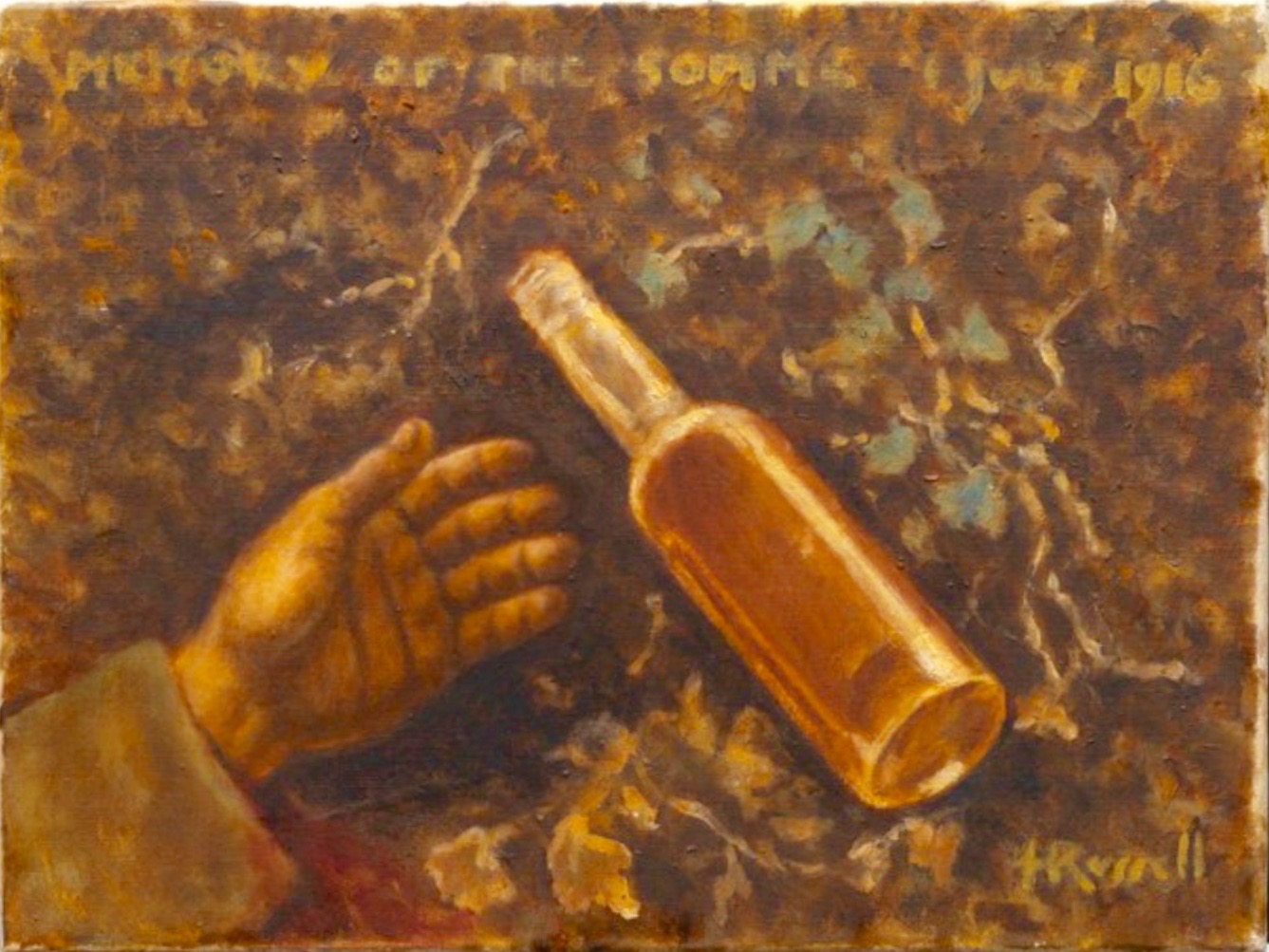
And another:

And the record:
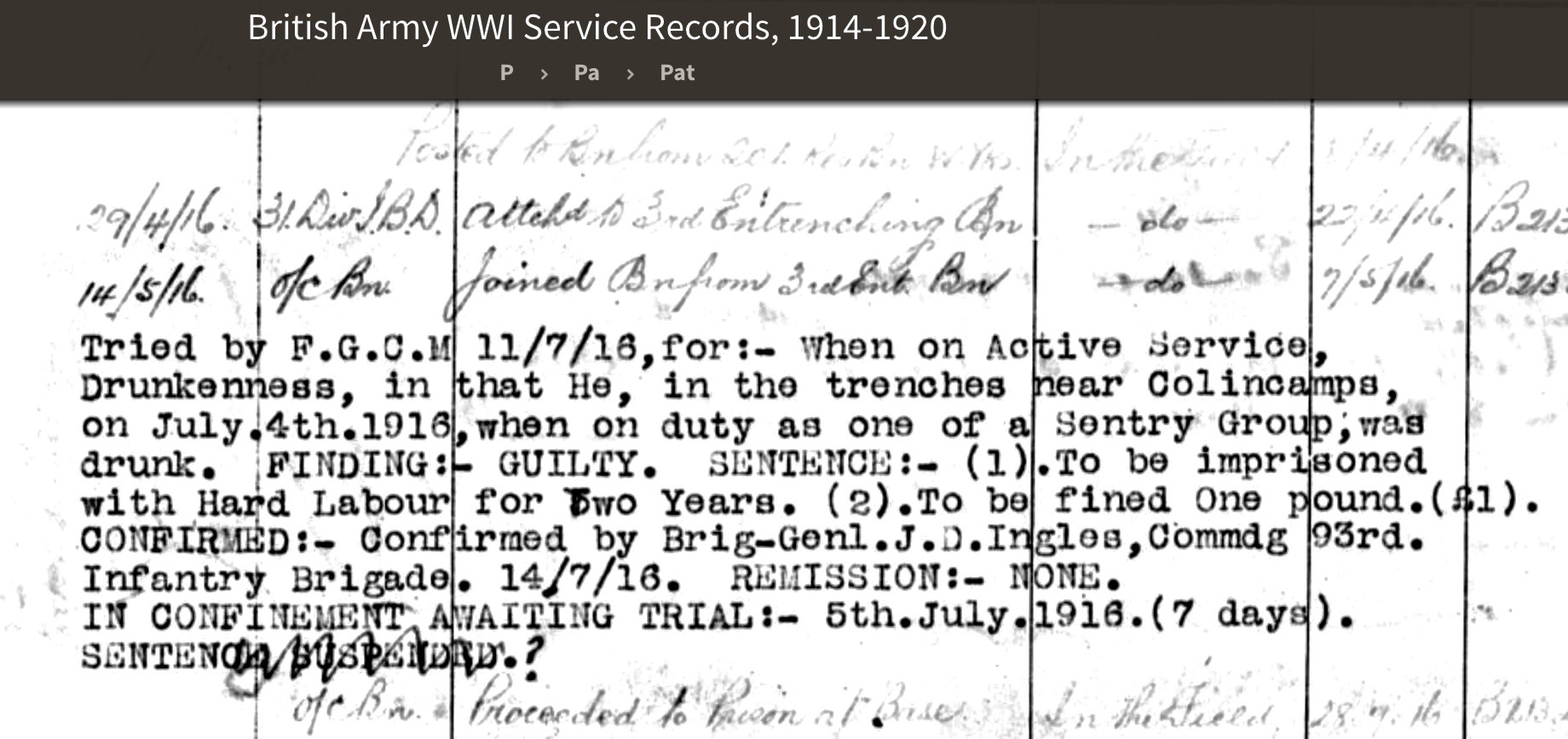
Promoted, Wounded and Decorated
In October 1917 16/1501 Pte. Patchett was released from prison and attached the 1st Battalion West Yorkshires. His sentence was suspended and later remitted.
In July 1918 the battalion was in Flanders and on the 14th of July – two years after Patchett has been sentenced on the Somme – he was with the battalion in an attack on Ridge Wood.
At 6.0am the Battalion attacked the enemy front system …. Our barrage opened 5 minutes too early but the whole attack went in splendid style and by 6.45 all objectives were reported taken. The battalion captured three officers and about 250 prisoners and 9 MG’s and many maps and documents etc. “C” company suffered heavily going through Ridge Wood – otherwise casualties were very light and caused to a certain extent by men rushing into own barrage…. Prisoners belonged to the 174th Regt, 31st division and appeared to be well-built men but had no heart for a fight, and surrendered in some cases quite willingly.
Those light casualties were 21 dead, 100 wounded and 14 missing.
I think it may have been for this attack that now Lance Corporal Patchett was awarded the Military Medal for bravery.

The battalion spent the next day in the captured trenches and were relieved at night and withdrew into divisional reserve around the Gower Buildings south of Poperinge. Three men were wounded in the relief on the 15th of July which was completed by 4am. Lance Corporal Patchett was one of them.
He was wounded in the left heel by shrapnel and taken the 2nd Canadian Casualty Clearing Station at Esquelbecq. He was sent to England and spent a month at the Ionic Street Military Hospital in Rock Ferry Cheshire.
There’s a rather full regimental conduct sheet in Joshua Patchett’s record. Patchett had a habit of returning late from leave, having his pay withheld and being confined to barracks. His first offense was days after he had joined – an infraction for which he was admonished. In January 1916 while at Clipstone he overstayed his pass, broke out of camp and was absent until reporting himself back he received 10 days detention. In February he was late again and received 9 days detention.
In March he was absent from tattoo again and was apprehended by the police in Shipley. He was again confined to barracks and forfeited his pay.
The record is faded and hard to read but there seems to have been at least 5 infractions for which his pay was docked and he was confined to barracks. He was finally demobbed in March 1920 and his last military infraction was for returning late from leave after Xmas leave 1919.
Back to Civilian Life
So what happened to Private Patchett once he returned to civilian life? The local newspapers pick up one thread.
Wednesday 16 March 1921
Joshua Patchett: 35, boatman, of Shipley, Bradford, was sentenced to three years’ penal servitude for a serious offence against his daughter, May Patchett, on December 17th, 1920.
Sheffield Daily Telegraph
25 January 1926
The Yorkshire Evening Post
RANGES FROM EMPTY HOUSE
TAKEN AWAY, SMASHED AND SOLD AS OLD IRON Two Shipley boatmen – George Cowman (49) and Josiah Patchett (40) – pleaded guilty at Bradford today to the theft of two fire ranges, valued at £8. It was stated that the ranges were taken from an empty cottage at Shipley, broken up, and sold to an old iron dealer for 15s. Superintendent Woodcock said Cowman had been convicted once for being drunk and disorderly in 1911. Patchett had been before the court 15 times, and had been sentenced to three years for a black list offence. Detective Shaw said Patchett had a wife and seven children. He would not work regularly, and his home conditions, because of his drinking habits, were very bad. He was also an associate of thieves and men of bad character. The case against Cowman was dismissed under the Probation Act, and Patchett was sentenced to three months imprisonment
19 November 1932
Shipley Times and Advertiser
FOURTH OFFENCE Stated to have four children, three of whom were not working, Joshua Patchett, aged 46, a boatman of 1 Stubbing Road, Windhill, appeared before the Bradford West Riding magistrates on Monday for being drunk and disorderly in Shipley on November 11. Superintendent Bell said that on this day Patchett drew 29s unemployment pay. When arrested by PC Whittaker, he was found to have 7d in his possession. There were three previous convictions, and he was fined 24s.
3 August 1935
Shipley Times and Advertiser
Joshua Patchett (50), boatman, Shipley, was fined 7s 6d for not having a dog licence, and 5s for having a dog with no name etc on collar at Shipley on June 11. PC Draper stated the facts.
1 August 1936
Shipley Times and Advertiser
WARRANTS ISSUED As Lily Walker (36), spinner, Bradford, did not appear in answer to a charge of having used obscene language at Shipley on July 13, at the Bradford West Riding Court on Monday, a warrant was issued for her arrest. The Bench adopted a similar method in respect of Joshua Patchett (50), boatman, Shipley, who failed to appear on a charge of having been drunk and disorderly at Shipley on the previous Saturday. Superintendent Spires said that Patchett had been allowed out on bail.
At the time of the 1939 registration Joshua and his wife Emily and two additional children are living at Ring O’ Bells, on the Leeds and Liverpool canal at Ormskirk.
1939 England and Wales Register
Joshua Patchett died on 7 Dec 1943 at the White Rose County Hospital, Wakefield, West Yorkshire England. He was 57.
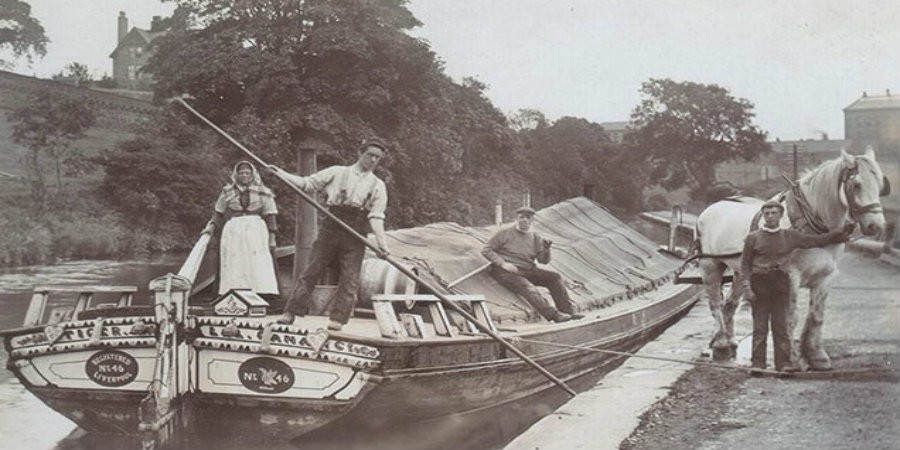
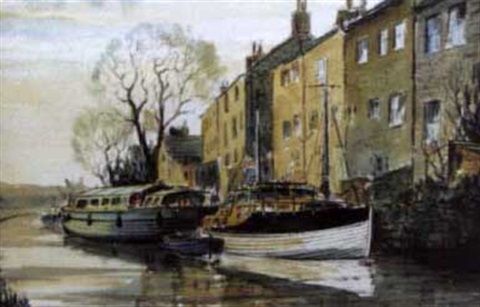
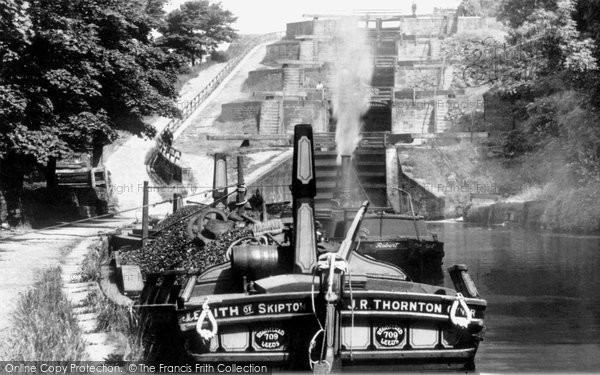
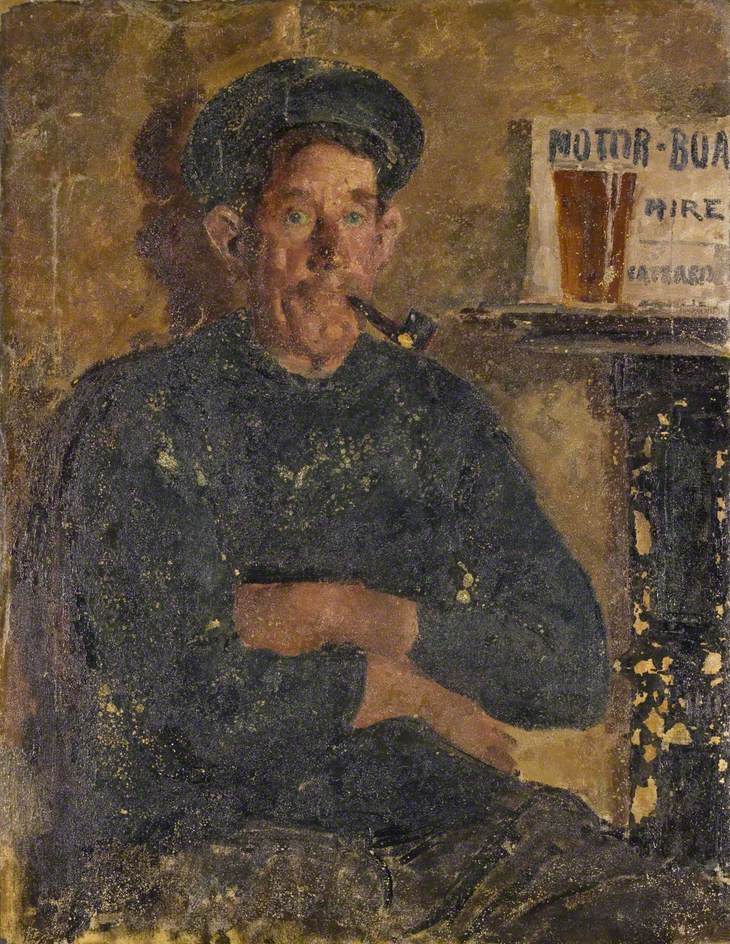
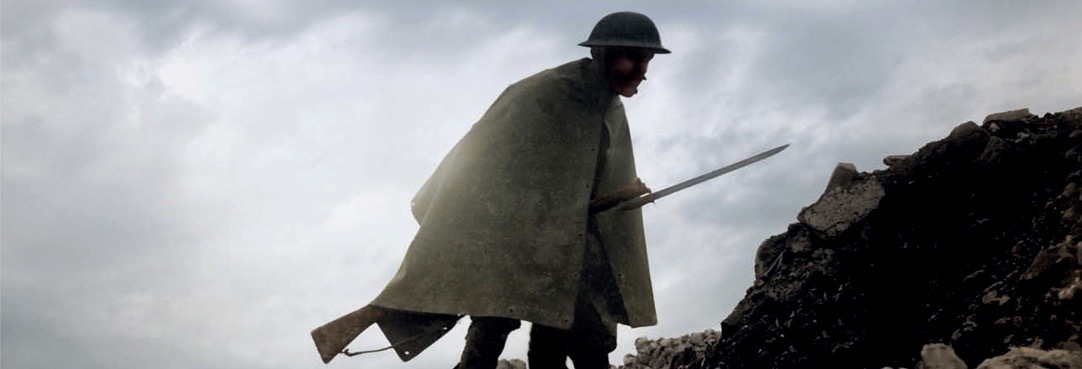


Hi
I am researching Joshua Patchett and wondered what started you researching him?
Joshua was the brother of William Patchett who married my great grand aunt Frances Wright.
Not a nice man at all!
Sue
Hi Sue – What started me was reading the War Diary of the 16th West Yorkshire Regiment. (Available for download from the National Archive.) I came across a reference that mentioned he had been sentenced to two years hard labour. As this was right in the middle of the Somme in July 1916 – when the regiment suffered heavy casualties and short on manpower – I was curious about what had happened. And then I read the two accounts of the regiment and came across more strange stories that didn’t ring quite true. So off I was on the trail. It’s possible I still have notes about what I uncovered that I did not include in the blog post. There’s another intriguing story from later in the war when a group of soldiers in this regiment was accused of desertion under fire.